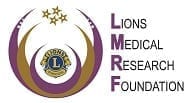The Prof. Ian Frazer Humanitarian Award is named after Professor Ian Frazer in recognition of his research into cervical cancer and his assistance to the Lions Medical Research Foundation.
Cervical Cancer
Professor Ian Frazer is a Scottish-born Australian immunologist, renal physician and clinical immunologist whose research led to the development of a vaccine against the strains of human papillomavirus (HPV) that cause most cervical cancers.
HPV Vaccines
In the early 1980s he conducted medical research on the hepatitis B virus at the Walter and Eliza Hall Institute in Melbourne. He transferred to the Princess Alexandra Hospital near Brisbane in 1985 to study HPV. A few years later Frazer founded and became the director of the University of Queensland’s Centre for Immunology and Cancer Research at the hospital.
He leads a research group working at the Translational Research Institute (TRI) in Brisbane, Australia on the immunobiology of epithelial cancers. He is recognised as co-inventor of the technology enabling the HPV vaccines, currently used worldwide to help prevent cervical cancer. He heads a biotechnology company, Jingang Medicine (Aus) Pty Ltd, working on new vaccine technologies, and is a board member of several companies and not for profit organisations.
Professor Frazer was the inaugural president of the Australian Academy of Health and Medical Sciences, and a member of the Australian National Science and Technology Council. He chairs the Australian Medical Research Advisory Board of the Medical Research Future Fund.
Australian of the Year
In 2006, he was recognised as Australian of the Year. He was also a recipient of the Prime Ministers Prize for Science, and of the Balzan Prize, in 2008, and was elected Fellow of the Royal Society of London in 2012. Ian was appointed Companion of the Order of Australia in the Queen’s Birthday Honours list in 2013.
Together with the Lions Medical Research Fund, Professor Frazer is committed to fundraising and the pursuit of finding cures and treatments for a wide range of diseases.
